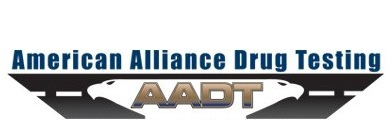DOT Inspectors Cracking Down on Drug Testing Evasion
The importance of responding to a random notification and testing in a timely manner should not be ignored. The consequences to the driver for not following protocol can be career ending. As the administrator of the program for our clients, we are required to keep documentation of all notifications mailed out and all communication from clients regarding notification. DOT inspectors will call to verify information and enrollment when they are performing compliance reviews, safety audits, or terminal inspections.
We had an unfortunate incident recently when an inspector called to inquire about enrollment and the drug testing history of an owner-operator client. The owner-operator failed to respond to random notifications that were mailed out to him and the failure to respond is being handled as a refusal to test.
The inspector later called during the week to inquire if we had referrals for an Employee Assistance Program. He stated that because of the non-response to a test notification by the owner-operator he was auditing, they are calling it a refusal to test. The inspector wanted to be prepared to have the owner- operator call us and get the EAP information.
As a result of the audit, the owner-operator’s authority to operate as a motor carrier has been suspended and he must complete the Employee Assistance Program before he can begin to operate again.
AADT complies with all state and federal requirements as they apply to operating a DOT drug and alcohol testing program. We are aware of testing programs operated by other TPA’s that skirt the spirit of the law if not enabling outright evasion of the law through their business practices. We have met with federal officials and discussed some of the evasive business practices of other drug testing programs and how they undermine the legitimacy of DOT’s drug and alcohol testing regulations. There are efforts underway in Washington to strengthen the regulations and close some of the well-known loopholes.
Employer Obligation to Insure Compliance
Another issue is when a company hands the random notification to a selected driver and tells him to test right away before he leaves on his next trip and the driver does not test before he leaves. This is a Refusal to Test under the regulations and the driver needs to be removed from the safety sensitive position and complete the Employee Assistance Program. It’s important to explain to your employees that once they are given the notification they are to head directly to the testing site to perform the required tests.
Hair Testing An Alternative to Urine?
There has been a significant push by mostly large truckload motor carriers to allow taking hair specimens as an alternative for DOT drug testing programs. Until now, there had been significant resistance within the federal bureaucracy to allow this alternative means of testing. That appears to be changing.
According to an article in Transport Topics (8/7/15), they reported that the Substance Abuse and Mental Health Services Administration’s Drug Testing Advisory Board (SAMHSA) had a secret ballot on August 7, 2015 that unanimously approved (9-0) forwarding a recommendation allowing the use of hair testing to the U.S. Department of Health and Human Services (HHS). Any policy shift and approval to allow for hair testing in lieu of urine collection must go through HHS and use the federal rulemaking process.
As a reminder we are republishing the pertinent section of federal regulation describing what constitutes a refusal to test:
PART 40: PROCEDURES FOR TRANSPORTATION WORKPLACE DRUG AND ALCOHOL TESTING PROGRAMS
Subpart I: Problems in Drug Tests
40.191 – What is a refusal to take a DOT drug test, and what are the consequences
(a) As an employee, you have refused to take a drug test if you:
(1) Fail to appear for any test (except a pre-employment test) within a reasonable time, as determined by the employer, consistent with applicable DOT agency regulations, after being directed to do so by the employer. This includes the failure of an employee (including an owner-operator) to appear for a test when called by a C/TPA (see ? 40.61(a));
(2) Fail to remain at the testing site until the testing process is complete; Provided, That an employee who leaves the testing site before the testing process commences (see ? 40.63 (c)) for a pre-employment test is not deemed to have refused to test;
(3) Fail to provide a urine specimen for any drug test required by this part or DOT agency regulations; Provided, That an employee who does not provide a urine specimen because he or she has left the testing site before the testing process commences (see ? 40.63 (c)) for a pre-employment test is not deemed to have refused to test;
(4) In the case of a directly observed or monitored collection in a drug test, fail to permit the observation or monitoring of your provision of a specimen (see ?? 40.67(l) and 40.69(g));
(5) Fail to provide a sufficient amount of urine when directed, and it has been determined, through a required medical evaluation, that there was no adequate medical explanation for the failure (see ? 40.193(d)(2));
(6) Fail or decline to take an additional drug test the employer or collector has directed you to take (see, for instance, ? 40.197(b));
(7) Fail to undergo a medical examination or evaluation, as directed by the MRO as part of the verification process, or as directed by the DER under ? 40.193(d). In the case of a pre-employment drug test, the employee is deemed to have refused to test on this basis only if the pre-employment test is conducted following a contingent offer of employment. If there was no contingent offer of employment, the MRO will cancel the test; or
(8) Fail to cooperate with any part of the testing process (e.g., refuse to empty pockets when directed by the collector, behave in a confrontational way that disrupts the collection process, fail to wash hands after being directed to do so by the collector).
(9) For an observed collection, fail to follow the observer’s instructions to raise your clothing above the waist, lower clothing and underpants, and to turn around to permit the observer to determine if you have any type of prosthetic or other device that could be used to interfere with the collection process.
(10) Possess or wear a prosthetic or other device that could be used to interfere with the collection process.
(11) Admit to the collector or MRO that you adulterated or substituted the specimen.
(b) As an employee, if the MRO reports that you have a verified adulterated or substituted test result, you have refused to take a drug test.
(c) As an employee, if you refuse to take a drug test, you incur the consequences specified under DOT agency regulations for a violation of those DOT agency regulations.
(d) As a collector or an MRO, when an employee refuses to participate in the part of the testing process in which you are involved, you must terminate the portion of the testing process in which you are involved, document the refusal on the CCF (including, in the case of the collector, printing the employee’s name on Copy 2 of the CCF), immediately notify the DER by any means (e.g., telephone or secure fax machine) that ensures that the refusal notification is immediately received. As a referral physician (e.g., physician evaluating a ?shy bladder? condition or a claim of a legitimate medical explanation in a validity testing situation), you must notify the MRO, who in turn will notify the DER.
(1) As the collector, you must note the refusal in the ?Remarks? line (Step 2), and sign and date the CCF.
(2) As the MRO, you must note the refusal by checking the ?Refusal to Test? box in Step 6 on Copy 2 of the CCF, checking whether the specimen was adulterated or substituted and, if adulterated, noting the adulterant/reason. If there was another reason for the refusal, check ?Other? in Step 6 on Copy 2 of the CCF, and note the reason next to the ?Other? box and on the ?Remarks? lines, as needed. You must then sign and date the CCF.
(e) As an employee, when you refuse to take a non-DOT test or to sign a non-DOT form, you have not refused to take a DOT test. There are no consequences under DOT agency regulations for refusing to take a non-DOT test.



